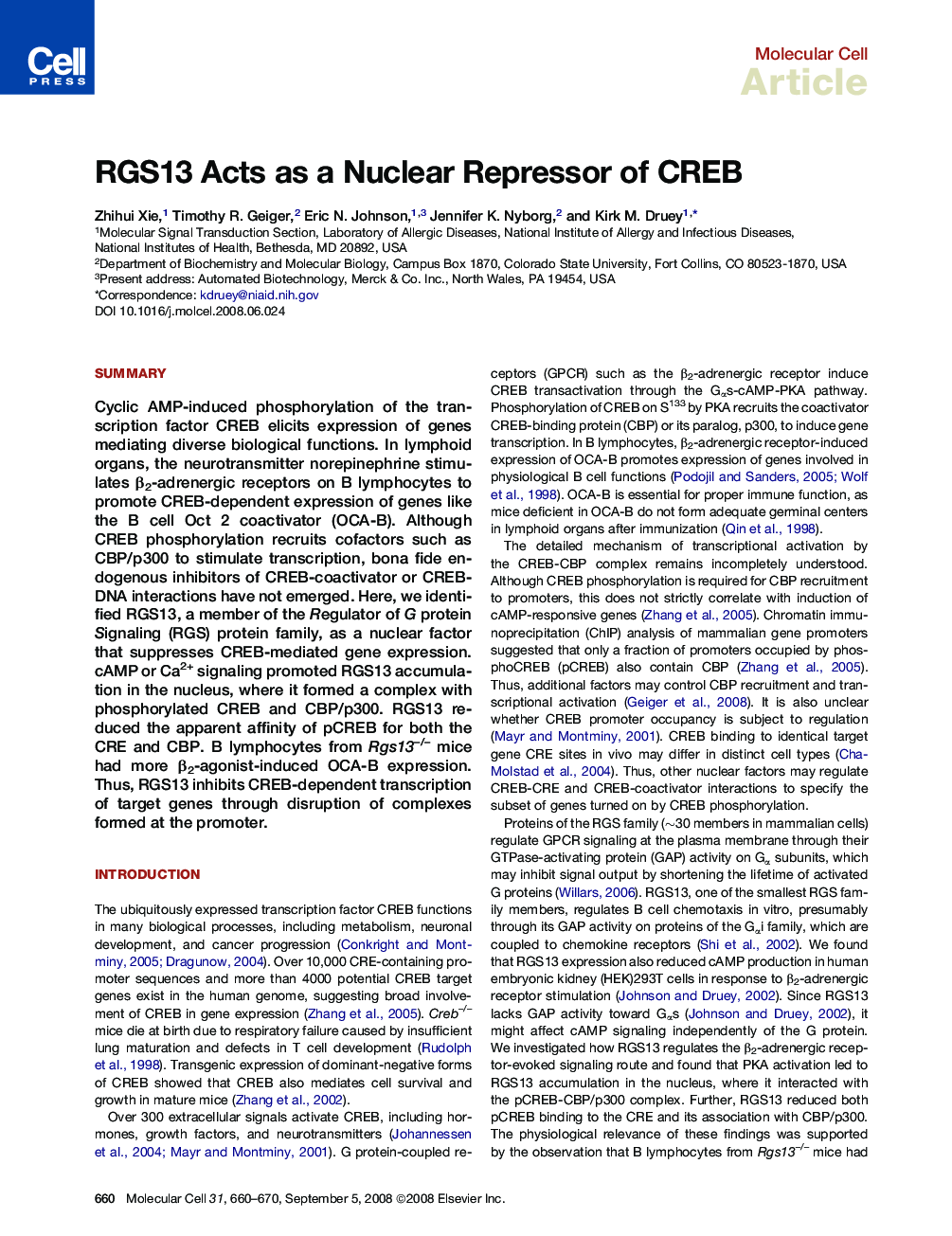| Article ID | Journal | Published Year | Pages | File Type |
|---|---|---|---|---|
| 1997217 | Molecular Cell | 2008 | 11 Pages |
SummaryCyclic AMP-induced phosphorylation of the transcription factor CREB elicits expression of genes mediating diverse biological functions. In lymphoid organs, the neurotransmitter norepinephrine stimulates β2-adrenergic receptors on B lymphocytes to promote CREB-dependent expression of genes like the B cell Oct 2 coactivator (OCA-B). Although CREB phosphorylation recruits cofactors such as CBP/p300 to stimulate transcription, bona fide endogenous inhibitors of CREB-coactivator or CREB-DNA interactions have not emerged. Here, we identified RGS13, a member of the Regulator of G protein Signaling (RGS) protein family, as a nuclear factor that suppresses CREB-mediated gene expression. cAMP or Ca2+ signaling promoted RGS13 accumulation in the nucleus, where it formed a complex with phosphorylated CREB and CBP/p300. RGS13 reduced the apparent affinity of pCREB for both the CRE and CBP. B lymphocytes from Rgs13–/– mice had more β2-agonist-induced OCA-B expression. Thus, RGS13 inhibits CREB-dependent transcription of target genes through disruption of complexes formed at the promoter.
